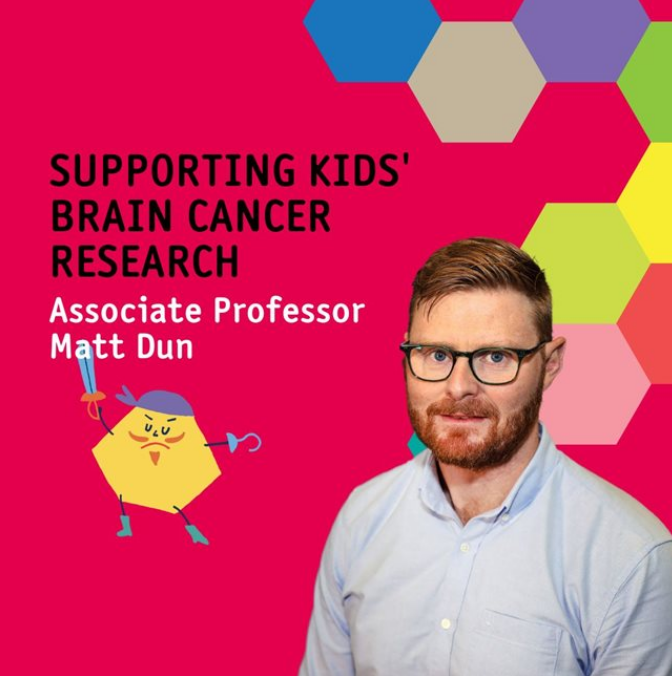
Australia has voted in a new government and The Kids’ Cancer Project is looking forward to collaborating with the new Minister for Health, the Hon. Mark Butler MP, to keep up the funding momentum to further brain cancer research.
Monday 26 September is Childhood Brain Cancer Awareness Day and in 2022 the focus is squarely on the need for more research funding into high grade gliomas (HGG).
Throughout September, The Kids’ Cancer Project is raising awareness of the need for more research into HGG, aggressive brain tumours that are the second most common and most lethal group of all childhood cancers, thanks to funding from and in collaboration with Cancer Australia.
The Kids’ Cancer Project CEO Owen Finegan agrees that funding Australian brain cancer research is critical to increasing survival rates. “Funding into childhood cancer research and access to clinical trials in recent years has seen dramatic increases in survival rates for all childhood cancers to over 80%. For kids with HGG the prognosis is grim, in fact, tragically, up to 80% of patients with HGG will die within 5 years.”
High-grade gliomas (HGG) are particularly aggressive and deadly brain tumours. Genetic mutations alter the activity of proteins controlling the growth and survival of cancer cells. For children diagnosed with HGG, we are yet to understand how these pathways function.
One of The Kids’ Cancer Project funded research projects, led by Associate Professor Matt Dun, will combine the investigation of tumour genomics and protein architecture to establish patient-specific therapeutic options with the greatest chance of survival.
Associate Professor Dun’s own daughter was lost to brain cancer – diffuse midline glioma (DMG) otherwise known as diffuse intrinsic pontine glioma (DIPG), a brain cancer diagnosed in younger children who only survive for nine to 11 months post diagnosis, says to the have the support of the Australian community and Government is critical if we are to improve outcomes.
“DMG is the leading cause of cancer related death in children and responsible for 20% of all childhood deaths from cancer. There are no recognised treatments other than palliative radiotherapy. Tragically only 10% of children, adolescents, and young adults will be alive 2-years after their diagnosis, and <1% 5-years. I am sincerely grateful for the funding support we have received from The Kids’ Cancer Project, but also encourage the new Federal Government to increase DMG funding to accelerate fundamental research, encourage collaborations that will help to develop the treatments desperately needed, our families cannot wait any longer.” Says Associate Professor Dun.
Childhood Brain Cancer Awareness Day has a collaborative focus that brings together key childhood and brain cancer groups, non-Government organisations and charities to work cohesively to increase research funding and improve outcomes for childhood brain cancer.
Owen says collaboration across the board is the key to success. “The Kids’ Cancer Project is a partner in the Australian Brain Cancer Mission committing over $5.1 million and the Australian Government’s Cancer Australia Priority Driven Collaborative Cancer Research Scheme. We have worked hard to collaborate across the brain cancer sector to ensure that funding into innovative research into brain cancer is supercharged. I’m excited to see what the future will bring by banding together to further increase support for our extraordinary researchers.”
Since 2005 The Kids’ Cancer Project has granted over $60M to support pioneering childhood cancer research. In the last five years alone The Kids’ Cancer Project has granted over $19M to Australian medical research. View all of our projects here.
